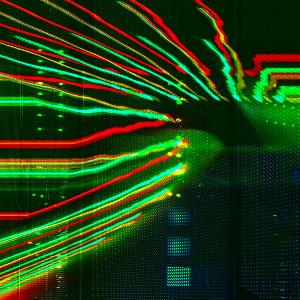Reliable knowledge about reliable AI
27 May 2022
German Academic Exchange Service funds artificial intelligence: A Konrad Zuse School is being established in Munich to provide top emerging talent with training in reliable AI.
27 May 2022
German Academic Exchange Service funds artificial intelligence: A Konrad Zuse School is being established in Munich to provide top emerging talent with training in reliable AI.

© LMU
Although the AI boom seems to be unstoppable, it is currently being slowed down by a lack of emerging talent with suitable top-quality training. This is where the new Konrad Zuse School of Excellence in Reliable AI (relAI) comes in. The school is being set up by the Technical University of Munich (TUM) and LMU in conjunction with more than 20 partners from research and industry. It will build up a network from the worlds of science and enterprise so as to attract excellent emerging talent in the AI field from every corner of the globe. The project has been awarded funding by the German Academic Exchange Service (DAAD). Stephan Günnemann, Professor of Data Analytics and Machine Learning at TUM is spokesperson for the school, while Gitta Kutyniok, Professor of Mathematical Foundations of Artificial Intelligence (Bavarian AI Chair) at LMU is co-spokesperson.
The structured new training program (MSc and PhD) is aimed at master’s and doctoral students from all over the world, who would thereby continue their scientific education in Munich. Accordingly, the goal of the initiative is to bind this emerging talent to Germany’s research landscape in the long term. Experts from the worlds of science and business will provide them with a research-based education and open up an application-oriented perspective for careers in the private sector. “The award of our joint Konrad Zuse School is a milestone,” says Gitta Kutyniok. “It gives us a real boost in the tough competition for the world’s best AI students.”
Furthermore, the new school is focusing on a topic that is of paramount importance for the progress of AI technologies – the reliability of processes. How reliable is artificial intelligence? How can it be ensured that the self-learning algorithms come to correct decisions, because they have learned the right thing and process it correctly? These questions have long ceased to be purely academic concerns, if our society is to depend upon AI applications in the future, notably in sensitive areas such as medicine and autonomous driving. After all, social acceptance of artificial intelligence also ultimately depends on how reliably the algorithms work and how well the privacy of users is safeguarded. It is important, therefore, that the graduates of the school are not only excellently equipped for technical challenges, but also for dealing with the social implications of AI.
The cooperation partners in the Konrad Zuse School relAI in Munich come from far and wide. In addition to the Fraunhofer Institutes for Cognitive Systems and for Applied and Integrated Security and the Helmholtz Zentrum München, they include AI centers from all over the world, such as at the universities of Stanford and Princeton, New York University, and ETH Lausanne and commercial enterprises such as Google, Siemens, and Munich Re.
The Konrad Zuse School of Excellence in Reliable AI is one of three new training facilities Germany-wide for emerging AI talent that are being funded by the DAAD. 18 projects competed for the award. The German Federal Ministry of Education and Research is providing 13.8 million euros in funding to the Munich school for the years up to 2027.